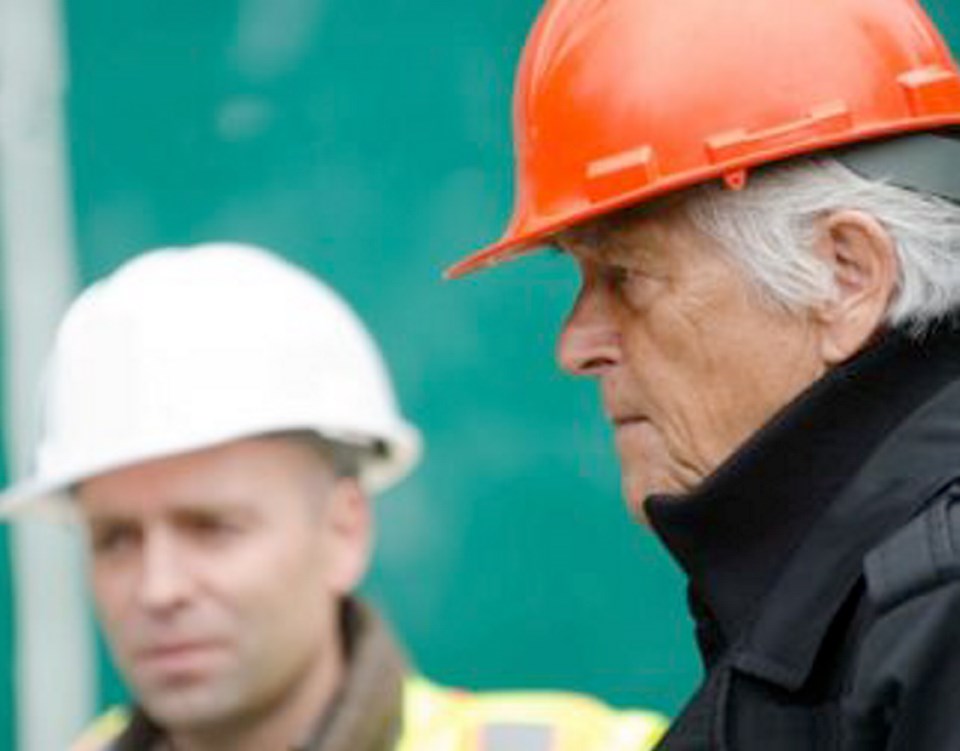The People of the Salmon are preparing to show there is a different way to farm fish — and that it can make money without hurting the environment.
‘Namgis First Nation, whose 4,000-year-old traditions are tied to the Pacific salmon of the Nimpkish River, is about to open the first phase of a unique $8.5-million closed-containment Atlantic salmon farm on reserve land south of Port McNeill.
The aim is to prove it is economically viable to raise Atlantic salmon on a commercial scale in tanks on land, rather than in open net pens in the ocean. The project is being watched intently by the salmon-farming industry and conservation groups.
The facility will be the first commercial-scale, land-based Atlantic salmon farm in Canada, although there is a small pilot project in West Virginia
Jackie Hildering, community liaison for Save Our Salmon, said a blessing ceremony is set for Feb. 18 and delivery of 23,000 Atlantic salmon smolts is expected in March. “The aim is to show there’s a better way,” she said.
The ‘Namgis have seen open-net-pen fish farms proliferate in the Broughton Archipelago and believe diseases and pollution from the farms are killing wild runs of salmon.
Finding alternatives to ocean farms is becoming increasingly important with confirmation of Infectious Salmon Anemia outbreaks on East Coast farms, Hildering said.
‘Namgis Chief Bill Cranmer is convinced ocean-based fish farms hurt wild fish. He’s equally sure the closed-containment project will be successful.
“The [farms] are so much a danger to our wild stocks. It affects the herring and everything else around the area. The clams are not healthy. They are a dark colour and smell because of the excrement,” he said.
The K’udas project — whose name means place of salmon — could ultimately produce 2,500 tonnes of fish a year, but the initial phase will produce about 470 tonnes. “I am hoping we can move those farms out of the ocean,” Cranmer said. “The big fish-farm operations say it will cost too much, but from our calculations, it’s going to be a good business and it’s going to be environmentally friendly.”
The land-based farm is entirely owned by the ‘Namgis, but funding has also come from the federal government, Tides Canada and conservation and philanthropic organizations.
The fish will be grown in five 500-cubic-metre tanks using recirculated fresh water and will be ready for harvest in 12 to 15 months. In open-net pens, the fish take 18 to 24 months to grow to harvestable size.
“We can control all the variables. There are no predators and we control swim speeds. Happy fish grow faster,” Hildering said.
The flavour is also likely to be good, according to Albion Fisheries, the wholesale company that has a contract with K’udas.
Steve Hughes, Albion general manager, noted the company already buys from West Virginia and the fish sell for a premium price. “It tastes better — the fat content is quite high, so it has a lot of flavour.”
The 100-gram starter fish are coming from Marine Harvest, the largest Atlantic salmon-farming company in B.C.
Other companies will be watching to see how the project progresses, said Mary Ellen Walling, executive director of the B.C. Salmon Farmers Association. “It’s pretty exciting,” she said. “We are looking forward to seeing a full cost analysis and getting a good understanding of the capital costs. That will be very important.”
Health of the fish through the growth cycle will also be watched, Walling said. “The companies are very interested to see if they can produce large-scale volumes.”



